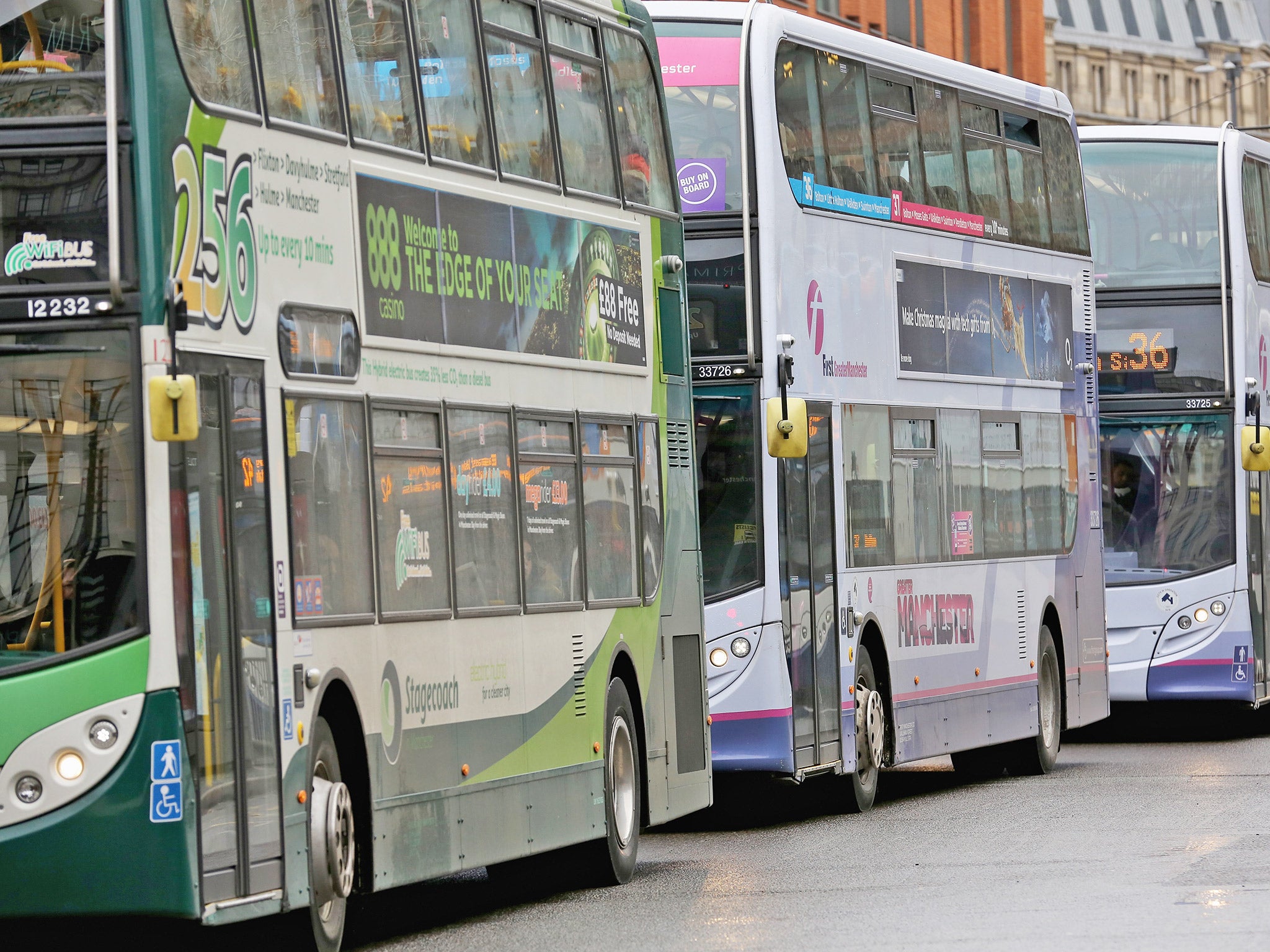Bus service 'decimation' leaves millions across England isolated due to council budgets cuts, warns report
Think-tank reveals bus use outside London has fallen by 36.5 per cent since services were deregulated in 1986 and calls for the establishment of 'total transport authorities'

Millions of people, including young adults, older people and the unemployed, have been left isolated because bus services across England have been “decimated” in recent years, a report has warned.
It blamed the crisis on a vicious circle of falling passenger numbers, rising fares and services being scaled back or scrapped, exacerbated by deep cuts to council budgets and bus company subsidies.
The IPPR think-tank said bus use outside London had fallen by 36.5 per cent since services were deregulated in 1986 and disclosed that there were now more passenger journeys in the capital each day than in the whole of the rest of England.
It called for the establishment of London-style “total transport authorities” which would take responsibility for bus routes, including those run by commercial operators and not-for-profit companies, across wide geographical areas.
The think-tank said a key reason for the decline was the Government squeeze on local authority spending which has had a knock-on effect on councils’ ability to support unprofitable bus services.
It said the Greater Manchester combined authority was about to follow London’s lead and take on regulatory powers over the buses in its devolution deal. Tyne and Wear, West Yorkshire and Cornwall are also considering the move.
Its main benefit is that money from fares can be retained in the area and used to subsidise uncommercial routes which provide a lifeline to thinly-populated areas.
The IPPR said older people were being particularly affected by the cuts, arguing that bus travel helped to ease the strain on the social care system by maintaining and improving their independence and well-being.
They also hit younger people who relied more on public transport than 15 years ago because of the rising cost of motoring meant fewer have driving licences.
The unemployed, low-income employees and the disabled were also being disproportionately affected, it added.
Luke Rakes, an IPPR research fellow, said: “The lack of commercially viable bus services in towns and rural areas, combined with the cuts to local government funding for non-commercial routes, has meant a downward spiral of higher fares, lower patronage and poorer services in many areas.
“Buses get people to work and get jobseekers to interviews, they bring families to shops and to schools and hospitals and they give older and disabled people the freedom to travel in their local community.”
Subscribe to Independent Premium to bookmark this article
Want to bookmark your favourite articles and stories to read or reference later? Start your Independent Premium subscription today.

Join our commenting forum
Join thought-provoking conversations, follow other Independent readers and see their replies